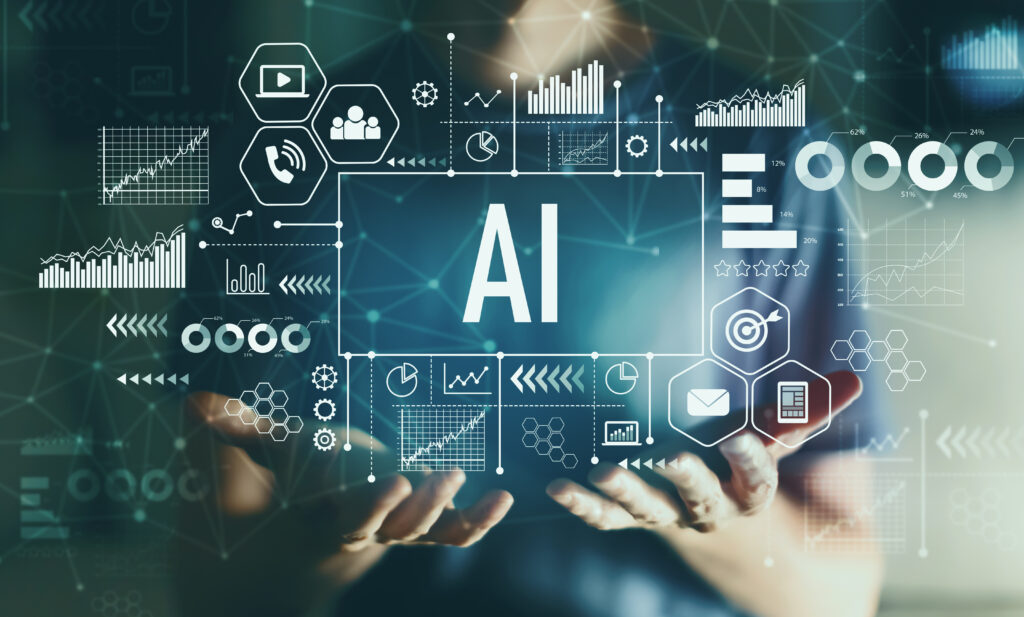What Role does Blockchain & Cryptocurrency play in the development of AI?

Arguably the two most exciting technologies of our time are Artificial Intelligence and Blockchain Technology.
While Artificial Intelligence is already understood on a basic level by most, and its impact on humans is discussed frequently, Blockchain Technology and Cryptocurrencies are still widely unknown or misunderstood by the global public.
Blockchain technology is a decentralized and immutable ledger system that facilitates secure and transparent transactions across a network of interconnected nodes. It operates as a shared database where each transaction is recorded in a block and linked together in a chronological chain. This technology ensures that data exchanges are immediate, transparent, and resistant to tampering or manipulation. Through cryptographic techniques, Blockchain provides an incredibly high level of security.
Cryptocurrencies have revolutionized how we think about transactions by offering secure, transparent, and immutable transactions. Unlike traditional banking systems, cryptocurrencies utilize advanced cryptography to ensure each transaction is secure and cannot be tampered with. This gives users peace of mind, knowing their funds are protected against fraud and unauthorized access. Moreover, they offer transparency in transactions. Every transaction made using a cryptocurrency is recorded publicly on the Blockchain. Anyone can view the details of a transaction, including the sender, recipient, and the amount involved. This transparency helps prevent fraudulent activities and promotes trust among users as they can verify the integrity of the transaction history. Cryptocurrencies eliminate the need for intermediaries such as banks or payment processors. With traditional financial systems, users often rely on third parties to facilitate transactions, leading to delays and additional fees. Cryptocurrencies, on the other hand, allow users to have direct control over their funds, enabling peer-to-peer transactions without the involvement of intermediaries. This makes the process more efficient and reduces costs.
How can Blockchain and Cryptocurrency contribute to the advancement of Artificial Intelligence?
Blockchain’s digital record offers insight into the framework behind AI and the origin of its data. This insight helps improve trust in data integrity and AI’s recommendations. Using Blockchain to store and distribute AI models provides a transaction history, and pairing Blockchain and AI enhances data security. Blockchain’s transparency makes it a dependable source of refined data, which is crucial for training AI applications. Decentralized ledger technology ensures AI applications’ autonomy, enabling decentralized management, and Blockchain’s cryptographic techniques enhance privacy, complexity, and competitiveness.
Moreover, Blockchain is responsible for providing the computing power required for training and maintaining AI systems, addressing resource-intensive requirements. AI, in turn, improves the intelligence of Blockchain-based business networks, providing access to larger datasets and enabling the creation of a transparent and trustworthy data economy.
AI can read, understand, and correlate data at incredible speed, bringing a new level of intelligence to Blockchain-based business networks. By providing access to large volumes of data from within and outside the organization, Blockchain helps AI scale to provide more actionable insights, manage data usage and model sharing, and create a trustworthy and transparent data economy.
Furthermore, combining AI, automation, and Blockchain can bring new value to business processes that span multiple parties by removing conflicts, adding speed, and increasing efficiency. By embedding AI models into smart contracts on a blockchain, companies can enable automated decision-making and execution of tasks.
There are numerous AI start-ups built on the Blockchain, and many are launching their own crypto tokens. For example, some crypto projects are pioneering the development of decentralized platforms that democratize access to GPU and AI resources. These platforms leverage Blockchain technology to create a transparent and accessible ecosystem where users can contribute their computing power and data resources, accelerating AI research and development. For access to GPU and AI resources, users often pay with the project’s native cryptocurrency token, which the GPU or AI resources lender receives. The cryptocurrency token, held in a wallet, can be exchanged on a decentralized exchange for any other cryptocurrency or offboarded into fiat currency. By eliminating centralized intermediaries and gatekeepers, these projects empower individuals worldwide to actively engage in AI initiatives through data sharing, model training, or algorithm development. As a result, users benefit from the collective intelligence and innovation of a global community, propelling the evolution of Artificial Intelligence towards greater accessibility, efficiency, and societal impact.
The accumulated synergies will only increase as the convergence of Artificial Intelligence and Blockchain technology unfolds. Cryptocurrencies, Blockchain-Technology, and Artificial Intelligence will undoubtedly present the next step in the evolution of digital innovation, and its impact on our society will be more significant than we can yet realize.
Author: Diego Righi | Tech-Scout
